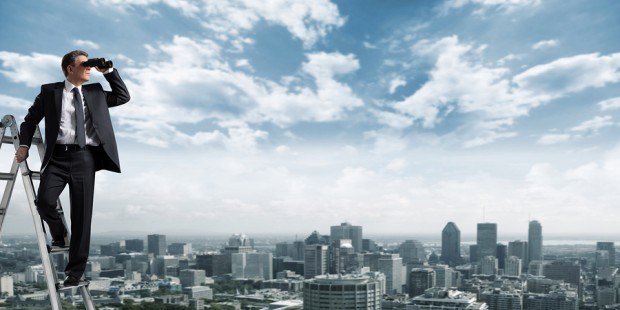The question that crops up whenever reinsurers experience soft market conditions is again being posed to industry executives, with leaders giving varying answers to analysts asking, “What kind of event could change the landscape?”
During an earnings conference call in mid-April, Michael Price, chief executive officer of Platinum Underwriters Holdings, said it could be a combination of events coming together rather than just one, adding, however, that he doesn’t anticipate a market-turning set of events anytime soon.
Price began his response by first recalling the market turn that preceded his company’s formation in 2002, when the reinsurance business of The St. Paul Companies (now part of Travelers) was spun out to form the “Class of 2001” Bermuda reinsurer Platinum Re.
“It was really more than one thing,” not just losses from the World Trade Center attacks that fueled the 2002 market turn, he said, noting that the 9/11 losses came in conjunction with a downturn in equity market, and after years of unrecognized loss reserve deficiencies on balance sheets of insurers and reinsurers—”and rating agencies reacting at the time in a somewhat abrupt manner.”
So it might not be a single event, he said, suggesting that “confluence of circumstances” might combine “to pull capacity out of the marketplace.
“That probably includes insurance and reinsurance losses, but it doesn’t even have to,” he said.
“We could have had a raging hard market” in the wake of the global financial crisis in 2008 “had it not been for certain efforts [by] the U.S. government [to] step in and support AIG [American International Group] or if it hadn’t been for the efforts [of] Berkshire-Hathaway to stabilize Swiss Re,” Price said, providing a market-turning event free of insurance and reinsurance losses.
“We need something dramatic, or some combination of things dramatic—probably beyond what we’re able to imagine,” he said. “I don’t know that it’s happening anytime soon.
“It could happen at any time, but if life goes on the way it has been for the last few years, then we are not at the bottom of a soft market,” Price said. “We are in the middle of a soft market and the natural evolution of this set of conditions is continued softness as far as the eye can see,” he said.
Back in 2008, reinsurance experts talked about loss events equivalent to three Hurricane Katrinas being required to turn the reinsurance market. At the Barclays Select 2014 Insurance Forum in New York last month, Jay Gelb, managing director at Barclays Capital, framed the market-turn question with reference to a $250 billion insured loss—five-times Katrina.
In particular, Gelb referred to a comment made by Warren Buffett in the Berkshire Hathaway’s annual report suggesting that Berkshire’s reinsurance operation, led by Ajit Jain, would be one of the few left to write business in the wake of a $250 billion mega-catastrophe.
That figure is nearly half the industry’s capital base, Gelb noted. Could something less change the market?
In the view of Kevin O’Donnell, chief executive officer of RenaissanceRe Holdings Ltd., the answer is yes.
Rather than focus on the magnitude of losses associated with an event, O’Donnell believes the question to ask is: “Is it surprising?”
“A New Madrid earthquake that’s half the size of a Florida hurricane is a lot scarier to people. Everybody knows New Madrid is out there but nobody really expects to see it in their lifetime.”
“There’s lot of different ways a market can change,” O’Donnell continued, adding that catastrophe model changes have fueled past market changes, as have financial crises and terrorism.
You also have to ask, “What does a changed market mean,” O’Donnell added.
“Is it a market where we have more capital coming in?”
“We have that now.”
“Is a changed market when rates are going up? Or is it a market where companies are going down—where there are insolvencies?”
O’Donnell concluded: “I don’t spend a lot of time worrying about when a market will change. I try to build as much optionality into being able to perform at levels that we want regardless of where the market is and regardless of what types of capital are available….
“We are far more conservative in avoiding risk than most large insurers,” Buffett wrote.
“For example, if the insurance industry should experience a $250 billion loss from some mega-catastrophe—a loss about triple anything it has ever experienced— Berkshire as a whole would likely record a significant profit for the year because of its many streams of earnings. And we would remain awash in cash, looking for large opportunities if the catastrophe caused markets to go into shock. All other major insurers and reinsurers would meanwhile be far in the red, with some facing insolvency,” Buffett said.
“If the $250 billion event happens, I would imagine that would change the market [and] I also think we’ll be there the next day along with Ajit. Going back over time, that’s been a hallmark of ours, being one of the first people back in the market writing risk.
“In this business, that is the most critical moment– to make sure you’ve got your doors open the morning after,” agreed Ed Noonan, the chairman and CEO of Validus Holdings. “That’s when you get disproportionate benefit,” Noonan said.
Noonan dismissed the whole idea that it takes ‘an event’ to the turn a market. “We just watched the U.S. commercial [insurance] industry go through its pricing cycle. There wasn’t a bloodbath. There weren’t a dozen insolvencies. Twenty CEOs didn’t get fired.
“Returns got unacceptable, then kind of stayed there for a couple of years, [and] then suddenly there was a gradual upturn in pricing. That upturn seems to be peaking, and in the second derivative it’s gone negative. But it’s still a constructive rate environment
“It didn’t take agony. It didn’t any big surprises,” he said.
Turning to the reinsurance sector, Noonan said, “There is no reason to think that there’s any less capacity available for U.S. insurance than there is for catastrophe—even with pension money coming in.”
Noonan said he simply doesn’t think about the concept of an event changing the market. “It’s not relevant to us,” he said, agreeing with O’Donnell that reinsurers need to a diversity of income options allowing them to perform in any market.





















 Beazley Agrees to Zurich’s Sweetened £8 Billion Takeover Bid
Beazley Agrees to Zurich’s Sweetened £8 Billion Takeover Bid  Retired NASCAR Driver Greg Biffle Wasn’t Piloting Plane Before Deadly Crash
Retired NASCAR Driver Greg Biffle Wasn’t Piloting Plane Before Deadly Crash  Lessons From 25 Years Leading Accident & Health at Crum & Forster
Lessons From 25 Years Leading Accident & Health at Crum & Forster  AIG, Chubb Can’t Use ‘Bump-Up’ Provision in D&O Policy to Avoid Coverage
AIG, Chubb Can’t Use ‘Bump-Up’ Provision in D&O Policy to Avoid Coverage 




















